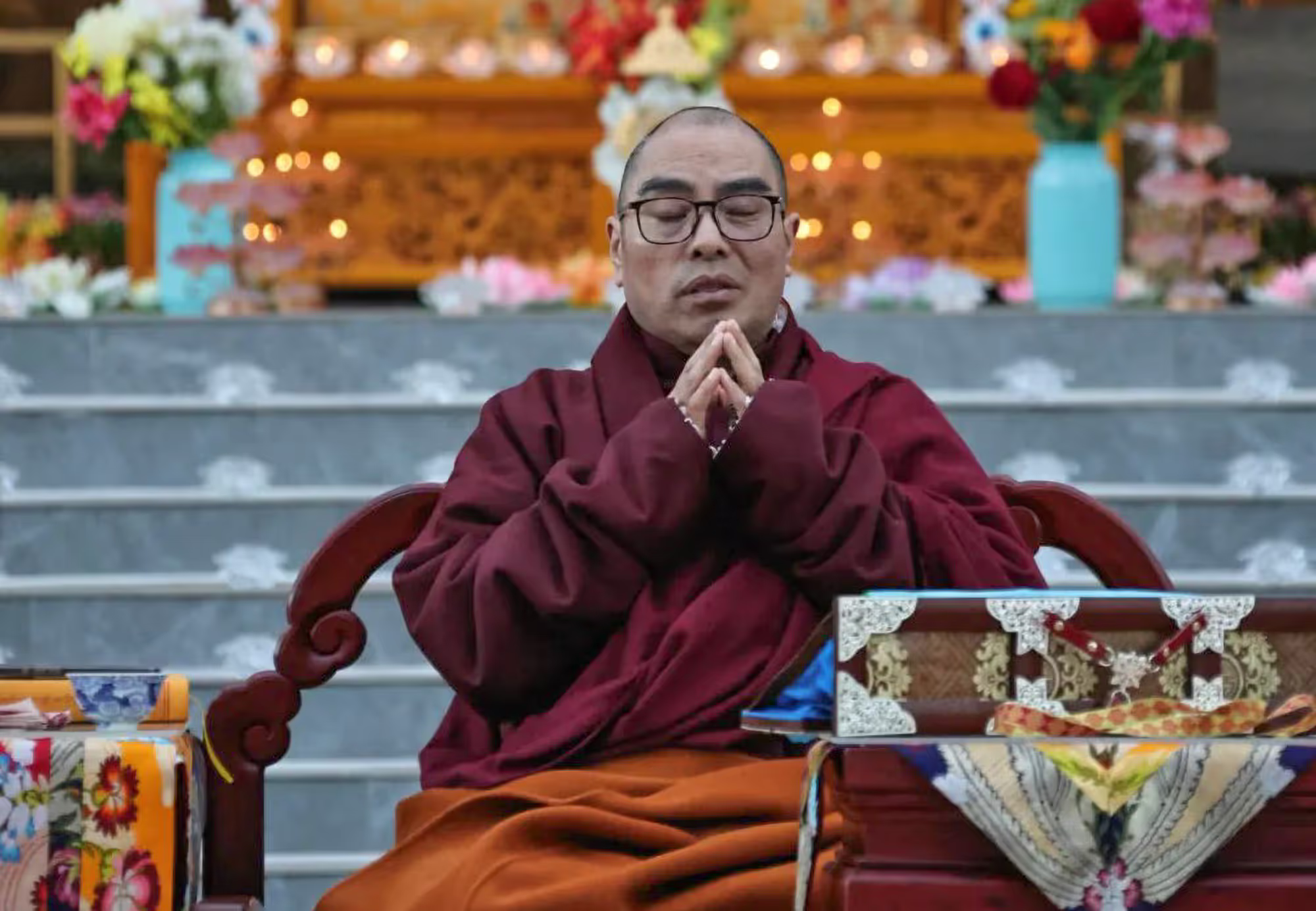The recent death of Tulku Hungkar Dorje, a revered Tibetan Buddhist lama, in Hồ Chí Minh City has raised serious concerns among human rights organizations and the international community. Known for his efforts to preserve Tibetan culture and education, he died under mysterious circumstances after reportedly fleeing China due to political persecution.
His other contributions to Tibetan society were significant. He founded the Tsongon Gesar Welfare Foundation in 2004 and established numerous schools aimed at preserving Tibetan culture and providing education to underprivileged communities. His dedication to cultural preservation and education made him a prominent figure, not only in his country but also among Tibetan communities abroad.
In response to his untimely passing, the Tibetan Government in Exile—the Central Tibetan Administration (CTA)—held a press conference on April 8, 2025. During the briefing, Additional Secretary Tenzin Lekshay and other speakers strongly condemned the “coordinated operation” by the Chinese and Vietnamese authorities involved in Dorje’s detention and death. They also expressed deep concern of China’s intensifying repression of Tibet and its people, highlighting their constant fear of arrest in the expression of their culture and identity.
Reports indicate that Dorje sought refuge in Vietnam in September 2024 after facing interrogation by Chinese authorities. On March 25, 2025, he was allegedly detained in Hồ Chí Minh City in a joint operation by Chinese and Vietnamese security forces. He died a few days later, with the cause of death officially attributed to illness. However, the lack of transparency has led to widespread skepticism and calls for accountability.
Human Rights Watch and the CTA have urged the Vietnamese government to conduct a thorough and impartial investigation into Dorje’s death. They emphasize the importance of adhering to international human rights standards, including the prohibition of refoulement—the practice of returning individuals to a country where they may face persecution. The circumstances surrounding Dorje’s death suggest potential violations of these principles.
The situation also highlights the broader issue of transnational repression, where authoritarian regimes extend their reach beyond borders to silence dissent. China’s efforts to suppress Tibetan culture and religion have been well-documented; Dorje’s case may represent an extension of these tactics into foreign territories.
Vietnam’s involvement raises questions about its commitment to human rights and sovereignty. By allegedly cooperating with Chinese authorities, Vietnam may have compromised its obligations under international law and its own legal standards. The lack of official statements or transparency from the Vietnamese government further exacerbates concerns about accountability and justice.
The international community must advocate for a transparent investigation into Dorje’s death and hold those responsible accountable for any violations of human rights. This includes ensuring that the Vietnamese government provides full disclosure of the events leading to Dorje’s detention and death, allows independent investigations, and upholds its obligations under international human rights treaties.
Dorje’s death is not just a loss for the Tibetan community but also a stark reminder of the ongoing challenges faced by individuals who advocate for cultural preservation and human rights. It underscores the need for vigilance and action to protect those who put their lives at risk to uphold these values.
As the world mourns this tragedy, it is important to honor Dorje’s legacy by demanding truth, justice, and the protection of fundamental human rights, especially from the leader of the Communist Party of Vietnam, Tô Lâm.
Tô Lâm should initiate a transparent and impartial investigation into Dorje’s death. This includes providing Dorje’s family and the monastic community with detailed information about the circumstances of his death, ensuring the return of his remains for proper funeral rites, and holding those responsible accountable for any human rights violations.
Transparency would demonstrate Vietnam’s commitment to upholding human rights and the rule of law. It would also signal a willingness to resist external pressures threatening national sovereignty and the safety of individuals seeking refuge within its borders.
General Secretary Tô Lâm’s actions will not only impact Vietnam’s international reputation but also set a precedent for how the country handles similar cases in the future. A thorough and transparent investigation into Dorje’s death is needed to ensure justice and uphold the principles of human rights.

